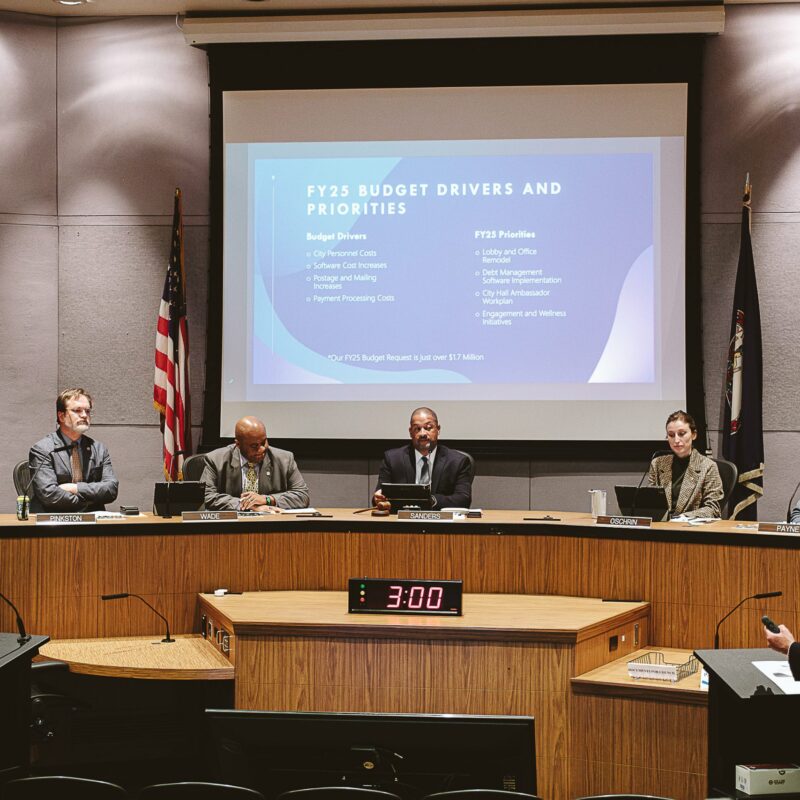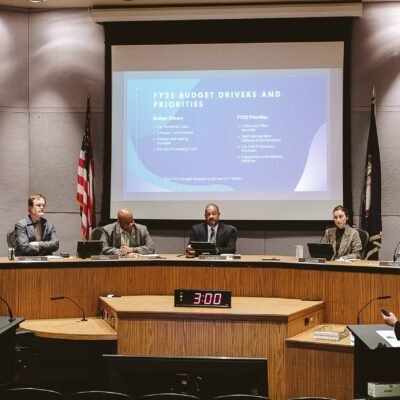In the audio archives of National Public Radio, my voice is there, recorded live during a January 28, 2006, broadcast of Decemberist frontman Colin Meloy’s solo performance at the Birchmere, a club in Alexandria. Among the capacity crowd packed into a space that resembled comic actor Red Green’s “Possum Lodge,” there’s my goonish “Whoo!” seconds after Meloy kicks off the first chords of “Here I Dreamt I Was an Architect.” So much for objectivity.

Colin Meloy
|
For a while, NPR offered the show as a download on its website; the audio file has since been removed “due to an agreement with the artist,” says the site. But I nabbed the recording before it went down, and have listened to it more than any studio record in my possession. At least, until the release of Colin Meloy Sings Live!, which offers primo recordings pulled during the shows from that 2006 tour.
If you’re a Decemberists fan, however, you’ve had your hands busy with a lot of material since Meloy last booked a solo tour. His band turned out The Crane Wife, a record that puts all his previous work to shame, composition-wise (thanks, presumably, to a Capitol Records budget); he booked a half-dozen gigs with various orchestras around the country, shows that he referred to as the true realization of the Decemberists’ sound during his July 14, 2007, gig with the Boston Symphony Orchestra; he recorded a few Sam Cooke tunes to sell during his 2008 solo trek, as he did previously with Morrissey and Shirley Collins.
Portland, Oregon-based folkie Laura Gibson proved a capable opening act and a necessary accompanist during Meloy’s sole Cooke cover, a version of “Cupid” that was seasonal in its swagger and true in its flight. But, as with the shrill folk act Lavender Diamond, who opened for the Decemberists during a 2006 tour, Gibson was tossed helplessly around by frothy waves of chatter and bottle clatter. Not her fault—nor was it the fault of a few fans-in-the-making near the front—but Gibson’s set should serve as a warning similar to Cat Power’s Chan Marshall, who played the Ballroom in 2005: Schoolyard-secret vocals don’t win fans in a noisy venue.
The challenge facing Meloy wasn’t volume; in fact, the only thing more Garrison Keillor than his physical appearance is his careful enunciation, each word as crisp and carefully crafted as his Smiths tribute haircut. Rather, it was a task of paring down his band’s arrangements to fit his one-size-fits-all strum. And while a chorus of Decemberists fans will surge forward to plug the leaks in Meloy’s ship (and they did, approximating a string section ripping through sixteenth notes in “Los Angeles, I’m Yours,” then resuming their foot-stomping percussive duty), not everything floats.
Meloy opened with the carnival noir and minor key of “Shiny,” and followed up with “The Sporting Life,” a major-key tale of a lovelorn fellow in soccer cleats; without question, the order should’ve been reversed. The audience was more than patient—craning forward attentively, even—during a two-part song in progress, but Meloy seemed to lose tolerance with the bar crowd in the back during “California One/Youth and Beauty Brigade,” another pairing that can last upwards of 10 minutes.
Then, quick as a hook from Sam Cooke himself, Meloy’s mood and tone seemed to switch. The singer successfully turned the Talking Heads bass-and-disco of “The Perfect Crime #2” into an approximated Eastern folk tune, the perfect set-up for the trio of songs (a set-closer and two encore numbers) that closed the night, among them the night’s best tune (“A Cautionary Tale”) and the reliable Decemberists closing number, “The Mariner’s Revenge Song” (which this reviewer never expected to hear sans accordion).
It’s difficult to ask for a perfect solo gig from a writer like Meloy: The fellow needs a band to give his lyrics the audio equivalent of cinematography, and a stage that better commands an audience. But an occasional triumph over the Satellite audience—say, a couple hundred fans humming the organ solo in “Red Right Ankle,” then giving over to the captain—made for moments all the more striking, interrupted only by the occasional “Whoo!”





